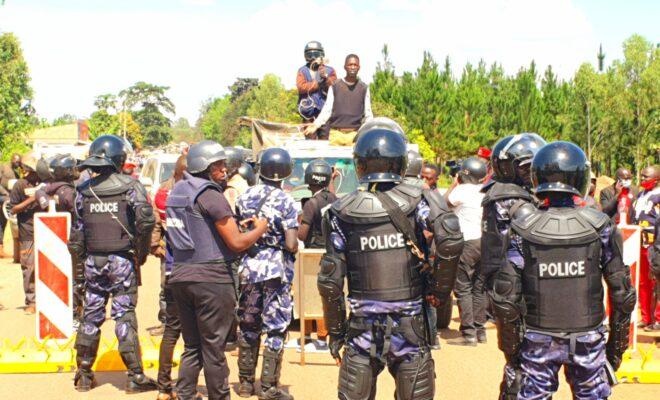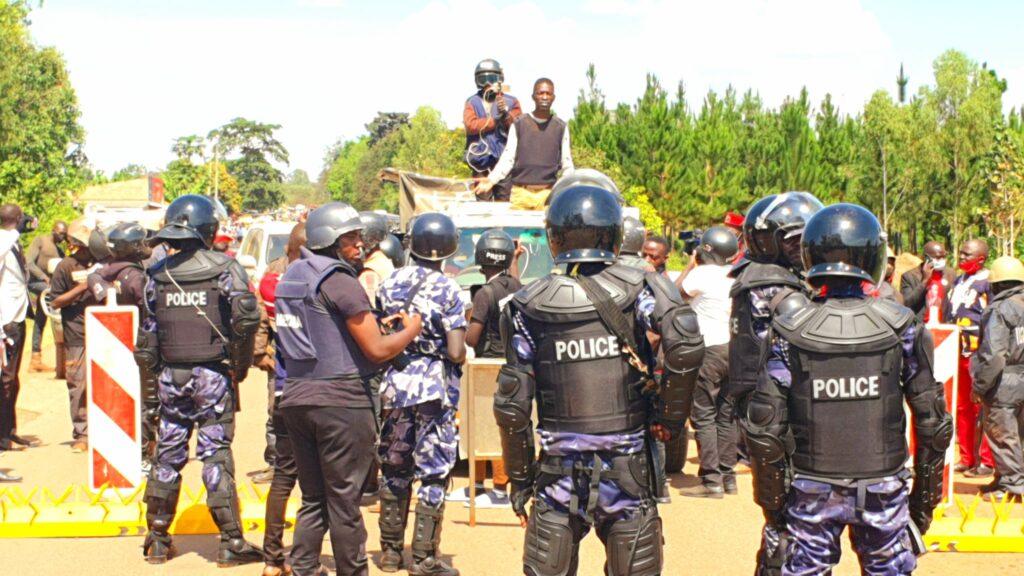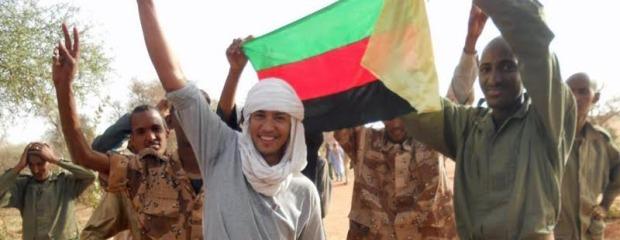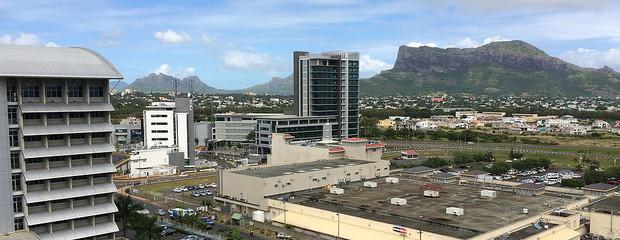Uganda: How donors can go beyond “strongly-worded statements”

Mild threats oblivious to how the NRM system actually operates are not enough.

The police block opposition presidential candidate Bobi Wine in December 2020 during the Uganda presidential election campaign. Credit: HEBobiwine.
The recent violence meted out by the Ugandan government ahead of presidential elections on 14 January attracted widespread international condemnation. Many diplomats and organisations have criticised the shooting of peaceful protesters, the arrest of presidential candidates, attacks on journalists and human rights activists, mysterious kidnaps and murders of opposition supporters.
The international attention on the worsening repression is welcome, especially as many previous crackdowns in Uganda have been greeted with muted responses. The resolution introduced by US Senator Bob Menendez on 17 December 2020 was unusually strongly-worded and followed similar statements from US officials warning of “consequences for those who undermine democracy”. 14 donor countries – under the umbrella of the Partners for Democracy and Governance Group – issued a statement condemning the arrest of human rights defenders. And a group of UN human rights experts also condemned the ongoing harassment of political opponents and civil society.
To many Ugandans, these statements offer some hope, but also leave a lot of room for scepticism. Donor governments and human rights organisations have long issued statements while doing little to change the status quo – and even working hand-in-hand with the ruling National Resistance Movement (NRM) behind the scenes. Donor interests often take precedence over human rights concerns, while the NRM government has proved adroit at portraying itself as the sole guarantor of national and regional stability to avoid greater criticism.
While the recent condemnations are perceived as good, therefore, they are not good enough. They are still mild and oblivious to how the administration of President Yoweri Museveni operates. If international actors genuinely want to support democracy in Uganda and check the NRM’s excesses, their efforts will have to change in at least three ways.
Beyond individuals
First, donors must look beyond a handful of individuals in the Museveni government to properly consider the threat posed by the NRM system as a whole. A narrow focus on individual perpetrators is problematic and allows the government to evade international accountability. For instance, just days after Menendez introduced his resolution and US Representative Eliot Engel issued a statement calling for sanctions against several security chiefs, President Museveni simply replaced two of those named.
This isn’t a new tactic. When the police force gained notoriety for brutality under the leadership of Kale Kayihura, he was replaced by career policeman Martin Ochola. The new deputy, however, was Sabiti Muzeyi, a soldier from an army unit that guards the president and a close relative to Museveni. Muzeyi held the real power in the force, which maintained its old outlook and has arguably become even more militarised and abusive.
The real threat posed to human rights comes from the NRM regime at large. Targeting individual perpetrators is laudable, but it does not go far enough to dismantle or even threaten the system that grooms them. As long as international attention continues to focus on individual culprits, the culture of impunity that pervades the NRM regime is likely to continue unabated.
Beyond short-term thinking
International actors also need to go beyond the current events to look at the long-term authoritarian character of the NRM. Violence against unarmed Ugandans and crackdowns on civil society has been a constant feature of the past 35 years. The recent incidents, which occur every campaign season, have helped to put a spotlight on these excesses, but political repression is the DNA of the Museveni regime.
From the infamous No-Party Movement system that criminalised opposition throughout the 1990s, to the pseudo multi-party system instituted since 2005, violence has been weaved into the modus operandi of the NRM state whenever it faces a threat to its power, electoral or otherwise.
The recent targeting of prominent activists – like the outspoken human rights lawyer Nicholas Opiyo – might have attracted attention, but the NRM’s political violence is far more long-term, far more widespread, and far more sophisticated. Kidnaps, murders, trumped-up charges, and other underhanded methods have been used systematically to silence dissent for decades.
It is also important that crackdowns against more prominent activists do not obscure the more mundane violence that has become a part of everyday life, much of it happening in spaces well beyond the gaze of international media and in periods between election seasons. Many of those languishing in prisons, torture chambers, and dying in mysterious circumstances are ordinary Ugandans.
To simply condemn the recent pre-election violence and call the Museveni regime to respect rights that it has violated for the last three decades is to do too little, too late.
Beyond rhetoric
Finally, donors need to go beyond statements to actions.
The NRM which began as a rebel force never really made the transition to a democratic entity. It despises the politics of diplomacy and is largely indifferent to legal proclamations. Moreover, throughout their stay in power, Museveni and company have mastered the art of managing appearances. They speak the language of human rights to evade human rights. They hide behind the trappings of democracy to exercise authoritarianism. Consequently, they are able to distinguish between rhetorical warnings from real threats to their regime’s survival.
To succeed in pushing for democratic change, international actors, therefore, have to back their words with concrete actions. It is not merely the threat of sanctions, but actual sanctions (targeting the regime as a whole and not limited to the election period) that the NRM will respond to. It is not just warning of consequences if the elections are undermined, but rejecting them when the evidence is clear that they are illegitimate. It is not only promising a re-assessment of relations with Uganda “if the forthcoming polls do not reflect the will of the Ugandan people”, as Senator Menendez warned, but taking action when months of widespread violence and repression have already precluded the possibility of a free and fair vote. To predicate a response merely on what will take place on voting day is to miss the big picture.
Ultimately, it is unlikely that the NRM can be reformed at this late stage. Its foundations are irreparably steeped in violence, corruption, and impunity. If donors are genuinely concerned about human rights, a more realistic stance would not be to push for reforms but the departure of the NRM to pave the way for a transition to genuine democratic rule.





